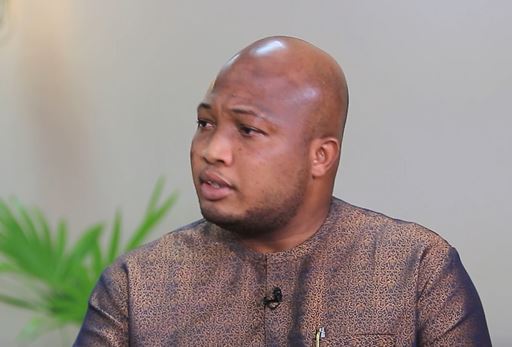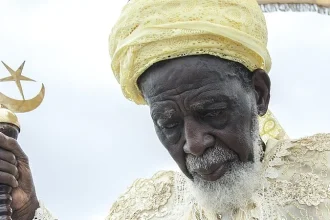The Overlord of the Gonja Kingdom, Yagbonwura Bii Kunto Jewu Soale, has made a passionate appeal to members of Parliament to reject any attempts to legalise LGBTQ+ in Ghana as he believes it is against Ghanaian cultural values.
According to the Yabongwura, the ancestors of the land will not pardon Ghanaians if an obnoxious bill is passed into law to support the practice.
“Our ancestors will never forgive us should we sit aloof and allow such a decision to be taken by the lawmakers to affirm LGBTQ+,” he said.
“I am certain that Ghana’s 8th Parliament of the Fourth Republic will unanimously approve the LGBTQ+ bill.”
The king made these remarks when the Speaker of Parliament paid a courtesy call on him at his private residence in Damongo as part of Parliament’s 30th-anniversary celebrations.
Responding to the Yagbonwura’s call, Mr Bagbin stated emphatically his stand on the pending LGBTQ+ bill.
“For you all to participate in it count me out of Ghana because I will prefer to join my maker than to live. That is me. I am a Catholic, and I will not do anything that will end the world because God says the world is eternal until he comes back. We cannot do that to end the world,” he stressed. “The Bill recognises our family values, it accepts what we call normal and not abnormal, and it protects those who by nature or whatever are caught, and so we will pass the legislation that we believe will not offend the position of the 1992 Constitution.”
The Promotion of Proper Human Sexual Rights and Ghanaian Family Values Bill, 2021, popularly referred to as the Anti-LGBTQI+ Bill, is not entirely unconstitutional but faces challenges of implementation if Parliament passes the bill.
The bill, which is currently under review by the Parliamentary Select Committee on Constitutional, Legal, and Parliamentary Affairs, seeks to provide for human sexual rights and Ghanaian family values while seeking to prohibit the activities of gays, lesbians, bisexuals, transgender, and queers in Ghana. A person found guilty could face up to 10 years imprisonment if the bill is passed.
















